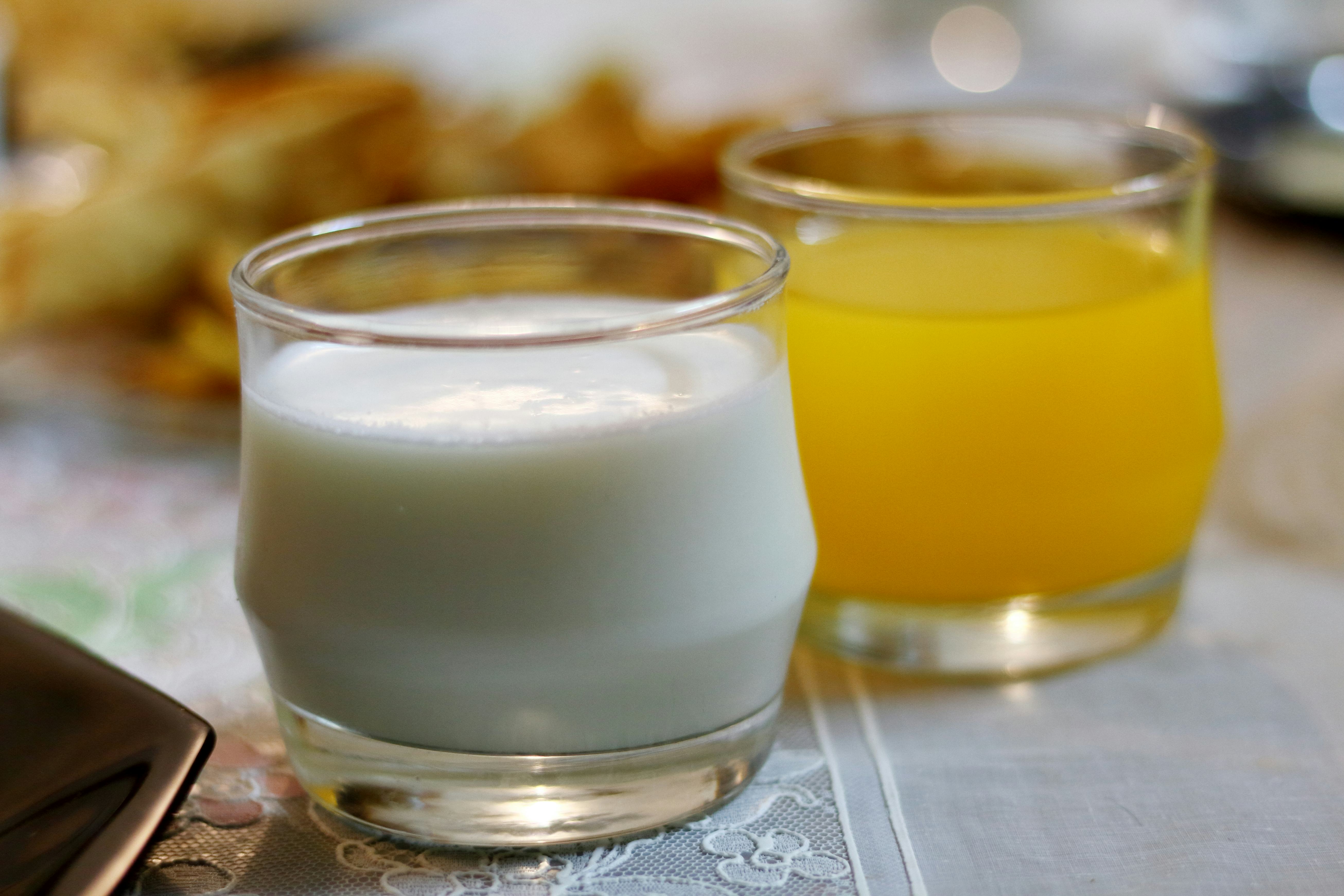
Milk and orange juice are staples of the classic American breakfast, along with eggs sunny-side-up, and bacon, of course.
Some believe, however, that chasing OJ with milk is a recipe for puking. The idea behind this myth is that when you mix orange juice with milk, it curdles in your stomach, making you feel nauseous.
Ali Rezaie, a gastroenterologist at Cedars-Sinai Medical Center in Los Angeles, graciously debunks this belief.
Why does milk curdle in orange juice?
Milk and orange juice sit on very different parts of the pH scale, which measures how acidic or alkaline (or basic) a substance is. Chemically, an acid is a substance that produces hydrogen ions when dissolved in water. An alkali produces hydroxide ions when dissolved in water. The pH scale ranges from 0 to 14, with 7 being neutral, like water. Substances below 7 are acids, and those above 7 are alkalis.
Orange juice, according to Rezaie, has a pH of 4. Cow’s milk hits just under 7, at 6.8 or 6.9, making it neutral for the most part.
Milk consists of casein proteins, the carbohydrate lactose, fat, and water. The casein proteins are quite fragile, so changes to the milk’s acidity will cause them to clump into curds. When the milk is at its ideal pH level, the proteins are fully dissolved. The acidity of the orange juice breaks up the proteins into discrete, kind of gross clumps.
What happens when I drink orange juice and then milk?
Don’t fret, according to Rezaie, you will digest them both without a problem.
Stomach acid gives orange juice a run for its money with a pH level between 1.5 and 3. That might not sound like a big difference, but the pH scale is logarithmic, which means changes are exponential; an acid at 3 is ten times more acidic than an acid at 4, and an acid at 2 is 100 times more acidic than one at 4. So, stomach acid at 1.5 is 250 times more acidic than orange juice.
“There's a ton of acid sitting in the stomach all the time,” Rezaie tells Inverse. Within a day, the stomach produces about half a gallon of acid.
Whatever you consume, it’s plunged into a vat of stomach acid that gets to work breaking down everything, including protein curds. “It doesn't matter whether you've added to orange juice or not right away,” Rezaie says. “It's been broken down.” Stomach acid is far stronger than orange juice, so your stomach can handle the two together.
For those who do get sick from dairy, usually, the problem is with the carbohydrate lactose, rendering them lactose intolerant. This means they lack the enzyme lactase to properly break it down, which can make for a gnarly stomachache.
What if I drink milk mixed with orange juice?
Probably not much. Many smoothies blend milk and orange juice or another acidic fruit, like pineapple. Many of us have enjoyed orange-and-vanilla ice cream bars without issue. The worst that could happen is some milk curds get stuck in your teeth.
CHECK, PLEASE is an Inverse series that uses biology, chemistry, and physics to debunk the biggest food myths and assumptions.
Now read this: Do bananas cause headaches? A food scientist peels away at the myth







